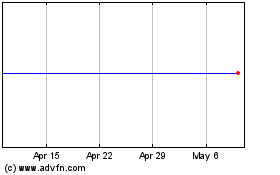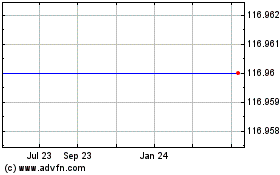By Dion Nissenbaum
WASHINGTON -- Secretary of State Mike Pompeo backed continued
U.S. military support for Saudi Arabia's war in Yemen over the
objections of staff members after being warned that a cutoff could
jeopardize $2 billion in weapons sales to America's Gulf allies,
according to a classified memo and people familiar with the
decision.
The move has fueled rising outrage in Congress, where a
bipartisan group of lawmakers is trying to cut off American
military aid for Saudi Arabia and the United Arab Emirates in their
three-year-old war against Iran-backed fighters in Yemen. More than
16,700 civilians have been killed or injured in Yemen, according to
the United Nations, which says the Gulf nation is home to the
world's worst humanitarian crisis. The U.S. is backing the Gulf
allies in Yemen, where the Trump administration is working to
contain Iran's allies and al Qaeda militants.
Mr. Pompeo overruled concerns from most of the State Department
specialists involved in the debate who were worried about the
rising civilian death toll in Yemen. Those who objected included
specialists in the region and in military affairs. He sided with
his legislative affairs team after they argued that suspending
support could undercut plans to sell more than 120,000
precision-guided missiles to Saudi Arabia and the United Arab
Emirates, according to a classified State Department memo and
people familiar with the debate.
State Department spokeswoman Heather Nauert said she wouldn't
comment on "the deliberative process or allegedly leaked
documents."
But she made it clear that the U.S. wants its Gulf allies to do
more to address continued American concern about the protracted
conflict in Yemen that has pushed millions to the brink of famine
and morphed into a proxy war where Houthi fighters have used
Iran-made missiles to target neighboring Saudi Arabia.
"While our Saudi and Emirati partners are making progress, we
are continuing discussions with them on additional steps they can
take to address the humanitarian situation, advance the political
track in cooperation with the U.N. Special Envoy's efforts, and
ensure that their military campaign complies with the law of armed
conflict and international humanitarian law," she said.
The U.S. currently provides the Saudi-led coalition with modest
military support, including weapons sales and aerial refueling of
jet fighters carrying out airstrikes in Yemen.
The U.S. also provides military training meant to help minimize
civilian deaths, and some battlefield intelligence, but the
American support has had a negligible impact on reducing civilian
casualties. A recent U.N. report found that the Saudi-led coalition
airstrikes were responsible for most of the 16,700 civilians killed
or injured in Yemen over the past three years.
Concerns in Washington were amplified last month when an errant
Saudi airstrike hit a school bus, killing more than 40 Yemeni
children on a field trip. Human rights researchers and reporters
who visited the scene of the bombing said the missile used in the
strike was American made, raising new alarms about U.S.
support.
Earlier this month, Mr. Pompeo asked his regional experts for
advice on a new requirement imposed by Congress that compels the
U.S. to cut off refueling operations unless the State Department
officially certifies every six months that Saudi Arabia and the
U.A.E. are doing enough to minimize civilian casualties in Yemen.
The law includes a provision that allows the U.S. to keep providing
the support on national security grounds if the State Department
determines that it helps protect America.
Most of the State Department's military and area specialists
urged Mr. Pompeo in the memo to reject certification "due to a lack
of progress on mitigating civilian casualties."
That included the State Department's Bureau of Near Eastern
Affairs, the Bureau of Political-Military Affairs, the Bureau of
Democracy, Human Rights and Labor, and the Bureau of Population,
Refugees and Migration. Their recommendation was also backed by the
legal advisers who took part in the policy review.
The experts argued that certification would "provide no
incentive for Saudi leadership to take our diplomatic messaging
seriously," and "damage the Department's credibility with
Congress," according to portions of the memo shared with The Wall
Street Journal.
They urged Mr. Pompeo to instead tell Congress that he couldn't
certify that the Gulf nations were doing enough to minimize
civilian casualties, but that the U.S. would continue to provide
military support to the coalition because it is in America's
national security interest.
The U.S. Agency for International Development went even further
and argued that the U.S. should halt military aid because "USAID
does not believe that continued refueling support will improve
either country's approach to civilian casualties or human
protections."
The only group that urged him to fully support the Saudi-led
coalition was the Bureau of Legislative Affairs, which argued in
the memo that "lack of certification will negatively impact pending
arms transfers."
The State Department's legislative team said "failure to certify
may also negatively impact future foreign military sales and direct
commercial sales to the region."
Use of American weapons in Yemen has become a polarizing issue
in Congress, where Sen. Bob Menendez, (D., N.J.), the top Democrat
on the Senate Foreign Relations Committee, has already used his
powers to delay efforts by Raytheon Co. to sell more than $2
billion in precision-guided missiles to Saudi Arabia and the
U.A.E.
State officials pushing for the U.S. to keep backing Saudi
Arabia argued that the coalition had taken important steps to
address American concerns. And Defense Secretary Jim Mattis also
urged Mr. Pompeo to support the Saudi-led coalition by certifying
that the Gulf nations were doing enough to merit continued U.S.
military backing.
Last week, Mr. Pompeo officially gave America's Gulf allies his
endorsement. But the memo informing Congress of his decision
reflected U.S. concerns.
"Recent civilian casualty incidents indicate insufficient
implementation of reforms and targeting practices," the memo said.
"Investigations have not yielded accountability measures."
U.S. officials say that a contrite and robust Saudi response to
its bombing of the school bus on Aug. 9 may have helped tip the
scales in Riyadh's favor. After the bombing, American military
officers privately warned Saudi Arabia that the U.S. might curtail
its support unless the coalition took steps to address their
concerns, according to U.S. officials.
Saudi Arabia admitted that it mistakenly targeted the school bus
and vowed to create more safeguards. But that has failed to address
all of the Trump administration's concerns and there is still an
active discussion in the administration about cutting off refueling
operations for the coalition.
Sen. Jeanne Shaheen (D., N.H.), co-author of the law that
required the certification, said Thursday that "it is abundantly
clear that this certification was bogus when it was announced, and
the reporting on this internal memo further confirms that the
administration has clearly violated the law."
Ms. Shaheen called on the Trump administration to revisit their
decision and "submit a certification that actually reflects the
facts on the ground."
Raytheon officials didn't respond to requests for comment.
Col. Turki al-Maliki, a spokesman for the Saudi-led coalition,
said on Wednesday that the U.S. and Saudi Arabia have
"longstanding, firm and strategically deep ties," but declined to
address specific questions about American warnings.
Write to Dion Nissenbaum at dion.nissenbaum@wsj.com
(END) Dow Jones Newswires
September 20, 2018 19:37 ET (23:37 GMT)
Copyright (c) 2018 Dow Jones & Company, Inc.
Raytheon (NYSE:RTN)
Historical Stock Chart
From Mar 2024 to Apr 2024

Raytheon (NYSE:RTN)
Historical Stock Chart
From Apr 2023 to Apr 2024
